Traveling, moving, or simply spending a night away from your familiar surroundings can have unexpected effects on your sleep—and your body. Many people experience a phenomenon known as the “first night effect” (FNE), where the quality of sleep is significantly disrupted in a new environment. In this comprehensive guide, we delve into what happens to your body when you sleep in a new place, explore the underlying science of sleep, and offer strategies to overcome the discomfort and disruption associated with the first night in an unfamiliar setting.
Whether you’re a frequent traveler or simply spending a night at a friend’s house, this article will provide you with valuable insights to ensure that your sleep remains restorative—even when you’re away from home.
The Mystery Behind Sleep: Why We Really Need It
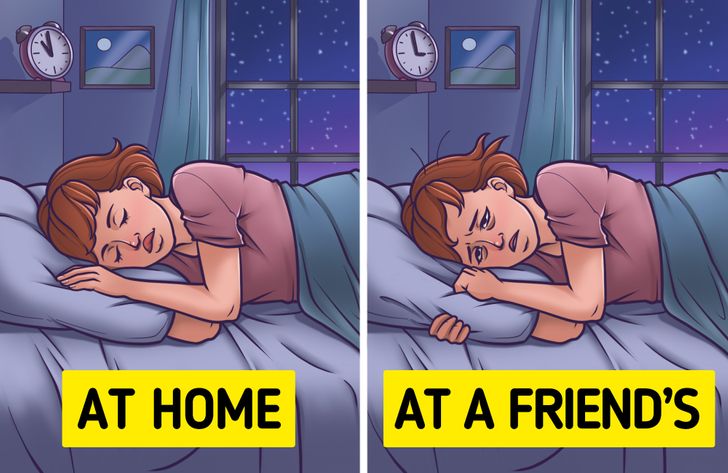
Sleep is a vital process that remains partially shrouded in mystery. Despite decades of research, scientists are still unraveling the full range of benefits that sleep provides to our body and mind. Understanding the complexity of sleep is key to appreciating how even small disruptions—like sleeping in a new place—can have noticeable effects on our overall well-being.
Key Functions of Sleep:
Restoration and Repair:
Sleep allows the body to repair tissues, build muscle, and consolidate memories. It’s during sleep that the body produces essential hormones like growth hormone, which plays a crucial role in cell regeneration.
Harvard Medical School provides an in-depth look at the restorative functions of sleep.

Cognitive Processing:
Sleep is critical for cognitive functions such as memory consolidation, learning, and problem-solving. Without adequate sleep, our ability to concentrate, think critically, and retain information is compromised.
Emotional Regulation:
A good night’s sleep helps regulate mood and manage stress. Lack of sleep has been linked to increased irritability, anxiety, and even depression.
Immune Function:
During sleep, the immune system releases cytokines—proteins that help fight infection and inflammation. Consistent sleep deprivation can weaken the immune response, making the body more susceptible to illness.
Despite the complexity of sleep, one thing is clear: the quality and duration of sleep are paramount to overall health. When you sleep in a new place, even minor changes in your environment can disrupt these crucial processes.
How Your Body Reacts to a New Sleeping Environment
When you sleep in an unfamiliar place, your body tends to be on high alert. This response is an evolutionary mechanism designed to protect you from potential threats in an unknown environment, but it can interfere with the deep, restorative sleep your body needs.
Physiological Responses to a New Environment:
Altered Sleep Architecture:
Studies have shown that when sleeping in a new place, the duration of REM sleep (critical for emotional regulation and memory consolidation) may be reduced. Sleep Foundation explains how the unfamiliarity of a new environment can disrupt normal sleep cycles.
Heightened Alertness:
In a new setting, your brain is more vigilant, scanning for potential dangers. This heightened state of alertness, often termed the “first night effect” (FNE), can prevent you from entering the deeper stages of sleep necessary for physical and mental restoration.

Increased Cortisol Levels:
The stress of an unfamiliar environment can elevate cortisol levels, a hormone associated with stress. Elevated cortisol can further interfere with sleep quality by disrupting your natural circadian rhythm.
Practical Tip:
If you’re aware that sleeping in a new place tends to disturb your sleep, try to recreate a familiar sleeping environment. Bringing along a favorite pillow or blanket, or setting up your space in a way that mimics your home can help signal to your brain that it’s safe to relax.
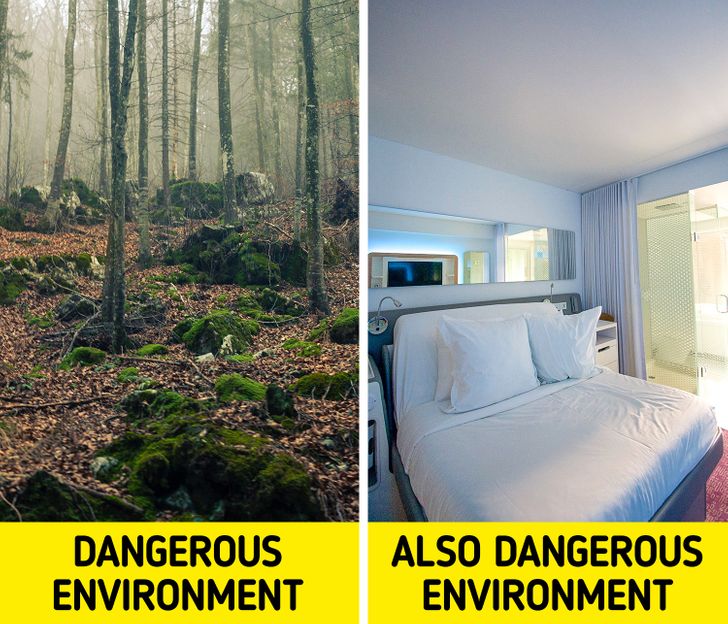
Experimental Evidence: How a New Place Disrupts Your Sleep Balance
Scientific research has provided intriguing insights into how sleeping in a new place can throw off your sleep balance. This phenomenon, widely recognized as the first night effect (FNE), is supported by various experiments and studies.
Key Findings from Sleep Studies:
Asymmetric Brain Activity:
Some studies have found that during the first night in a new place, one hemisphere of the brain remains more alert than the other. This asymmetry is thought to be a protective mechanism, keeping you partially aware of your surroundings.
Sleep Efficiency Drops:
Research indicates that sleep efficiency—measured by the percentage of time spent asleep while in bed—declines significantly during the first night in a new environment. This reduction in efficiency is largely due to increased wakefulness and lighter sleep stages.
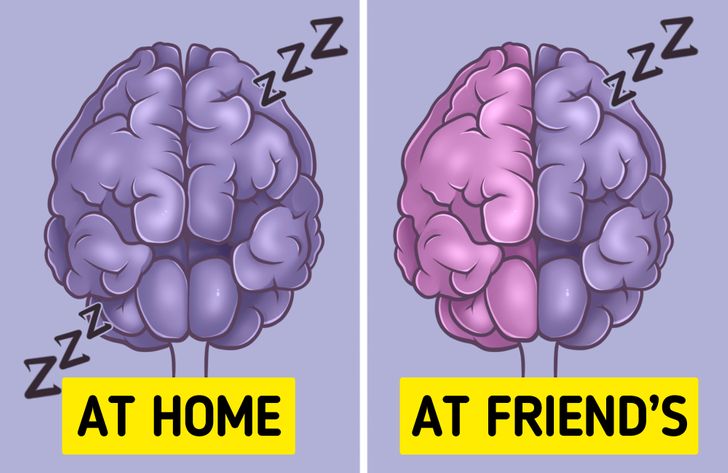
Long-Term Adaptation:
Although the first night effect is most pronounced on the first night, it typically diminishes as you become more accustomed to the new environment. However, for frequent travelers, this constant disruption can accumulate, affecting overall sleep quality.
For a deeper dive into the science behind the first night effect, PubMed offers access to a range of studies that explore sleep architecture and brain activity during sleep in unfamiliar settings.
Practical Tip:
Understanding that your body is wired to be more alert in new environments can help you manage expectations. Give yourself time to adapt and consider using relaxation techniques such as meditation or deep breathing exercises before bed to help ease your mind.
Overcoming the Fear of the New Environment (FNE): Expert Strategies to Mitigate Sleep Disruption
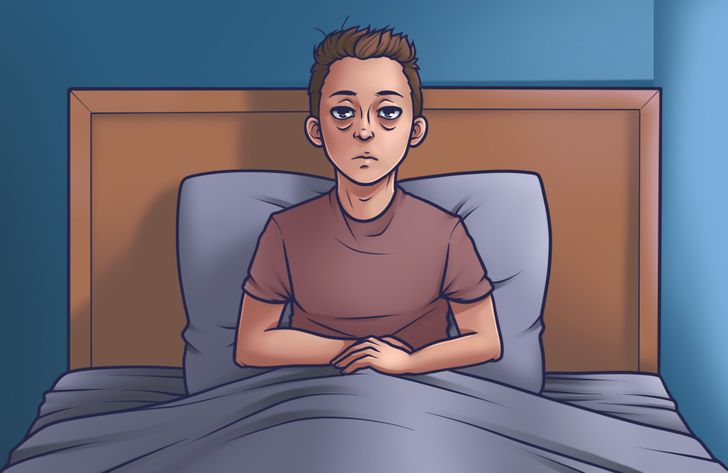
Fear of the new environment, commonly referred to as FNE, is a significant factor contributing to sleep disruption. Researchers have shared several strategies to help overcome FNE and ensure a better night’s sleep, even when you’re away from home.
Effective Strategies to Combat FNE:
Create a Comfortable Sleep Environment:
Invest in travel-sized items that help recreate the comfort of your home, such as your favorite pillow, blanket, or even a sleep mask. Personalizing your space can significantly reduce anxiety about the unfamiliar setting.
Establish a Consistent Routine:
Try to maintain your usual bedtime routine regardless of where you are. Familiar activities such as reading, listening to calming music, or taking a warm bath can signal to your brain that it’s time to wind down.
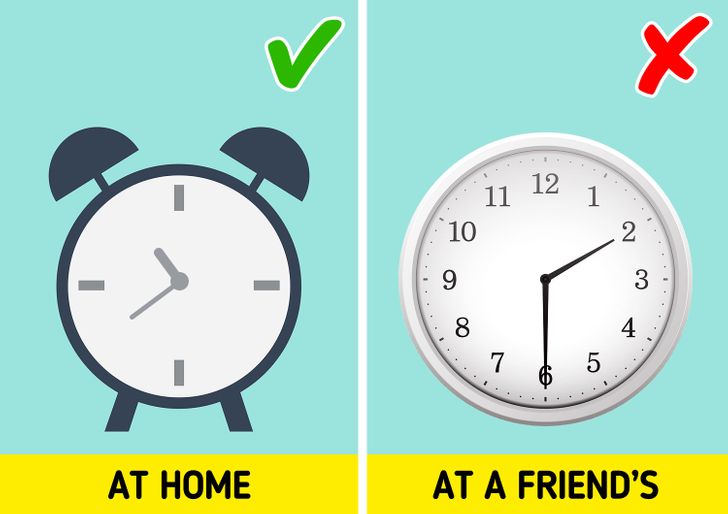
Practice Relaxation Techniques:
Techniques such as progressive muscle relaxation, deep breathing, or guided meditation can be particularly effective in reducing stress and easing the transition into sleep. Apps like Headspace or Calm offer guided sessions specifically designed for sleep.
Limit Exposure to Screens:
Blue light from screens can interfere with your circadian rhythm. Try to avoid using electronic devices at least an hour before bedtime, and consider using blue light filters if necessary.
Mindful Journaling:
Writing down your thoughts before bed can help clear your mind of worries and reduce nighttime anxiety. Reflecting on your day and jotting down positive experiences can create a more peaceful mental state.
For more tips on overcoming sleep disruptions caused by new environments, Sleep Foundation and Harvard Health Publishing provide expert advice on sleep hygiene and managing anxiety.
Practical Tip:
Before you travel or move into a new place, prepare a “sleep kit” with your comfort items and relaxation tools. This small investment can make a significant difference in easing the transition and mitigating the first night effect.
Conclusion: Embrace the Adaptation Process for Better Sleep Anywhere
Sleeping in a new place can be challenging, but understanding the physiological and psychological reasons behind sleep disruption can empower you to take proactive steps. Whether it’s the natural alertness of your brain in unfamiliar surroundings, the disruption of your sleep architecture, or the fear of the new environment (FNE), there are practical strategies you can adopt to ensure a more restful night.
By learning why your body reacts the way it does—such as reduced sleep efficiency, increased cortisol levels, and even asymmetric brain activity—you can better appreciate the importance of a consistent sleep routine. Implementing expert tips like maintaining your usual bedtime rituals, personalizing your sleep environment, and practicing relaxation techniques can significantly improve your sleep quality, even when you’re away from home.
For more detailed information and expert guidance on optimizing your sleep habits, explore trusted resources such as Harvard Medical School’s Sleep Health and the National Sleep Foundation. By embracing these strategies, you can transform the way you sleep, ensuring that even in a new place, your body gets the rest it needs to function at its best.
Remember, while the first night effect can be frustrating, it’s a natural response designed to protect you. With time and the right techniques, you can overcome the initial sleep disruption and enjoy the benefits of a good night’s sleep—no matter where you are.
Invest in your sleep health today by implementing these tips, and experience the profound benefits of restful, restorative sleep that will improve your mood, cognitive function, and overall well-being. Embrace the journey of adapting to new environments, and let every night be a step toward a healthier, more balanced life.









